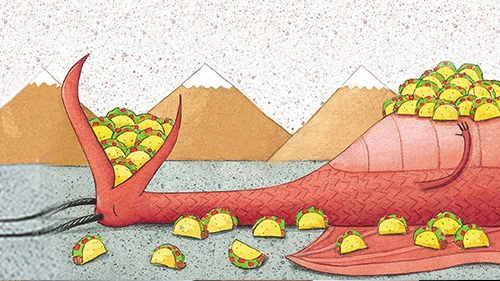Nicholas Rinaldi, Writer of Character-Rich Novels, Dies at 86

This obituary is part of a series about people who have died in the coronavirus pandemic. Read about others here.
The writer Nicholas Rinaldi, in a poem published in 1981 titled “We Have Lost Our Fathers,” proffered a grim view of human destiny. “We will die,” he wrote. “They will not remember who we were.”
Mr. Rinaldi, who died on May 27, is very likely to defy that prophesy. He will not be soon forgotten by the hundreds of students he inspired as a professor of literature and creative writing, nor by the many readers, past and future, of his poetry and acclaimed four novels.
He was 86 when he died at Bridgeport Hospital in Connecticut. The cause was pneumonia, which he developed as a complication of the novel coronavirus, his son David said.
Mr. Rinaldi published his first novel, “Bridge Fall Down,” in 1985. It was followed by “The Jukebox Queen of Malta” (1999), “Between Two Rivers” (2004) and “The Remarkable Courtship of General Tom Thumb” (2014).
In The New York Times Book Review, Adam Mazmanian wrote that “Between Two Rivers,” the biography of a building and its residents in Lower Manhattan between the terrorist attacks on the World Trade Center in 1993 and 2001, was a “sprawling elegant study.”
And in reviewing “The Jukebox Queen of Malta” in The Times, Richard Bernstein wrote that it offered a “funny, melancholy, romantic, disturbing, character-rich window” on World War II.
Here Mr. Rinaldi was traversing ground — “the absurdist confines of World War II” — that had been the territory of Joseph Heller, Norman Mailer and William Styron, Mr. Bernstein wrote. (The book carried a cover blurb from Mr. Heller.)
“His new book does not have the searing, epochal quality of the works of those famous writers,” Mr. Bernstein added, “but it does show that Mr. Rinaldi belongs in their company.”
Nicholas Michael Rinaldi was born on April 2, 1934, in Brooklyn to Frank and Rose (Lopena) Rinaldi. His father was a violin dealer and collector, his mother a seamstress.
Raised in the Borough Park section, he graduated in 1951 from Brooklyn Preparatory School, a Jesuit institution. He entered St. Andrew-on-Hudson, a seminary in Hyde Park, N.Y., where he studied until 1957. He enrolled in a master’s program that year at Fordham University and went on to earn a doctorate in English literature in 1963 with a dissertation on William Faulkner.
He met his future wife, Jacqueline Tellier, at Fordham; they married in 1959, and she survives him. In addition to her and their son David, Mr. Rinaldi is survived by their daughter, Tina Banas; their sons Paul and Stephen; eight grandchildren; and Mr. Rinaldi’s sister, Isabelle Rinaldi.
Mr. Rinaldi started his teaching career in 1966 at St. John’s University in Queens, then moved to Connecticut to teach at Fairfield University, like Fordham a Jesuit institution as well. He taught there for 30 years, established a creative-writing program and served as a dean and as chairman of the English department.
Critics often praised Mr. Rinaldi for how thoroughly he developed his fictional characters, as if he had known them intimately.
Explaining his method, he once said: “Some writers always groove to personal experience, but I always work with invented (or historical) characters, people I don’t know. That’s what drives the engine of creating — to find out who these people are.”




